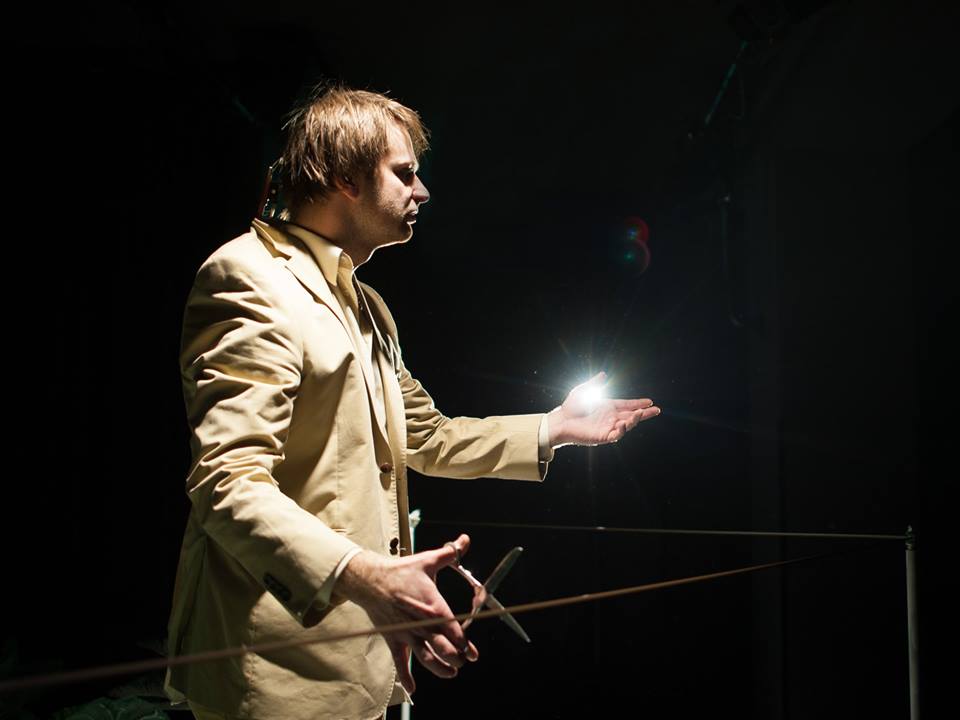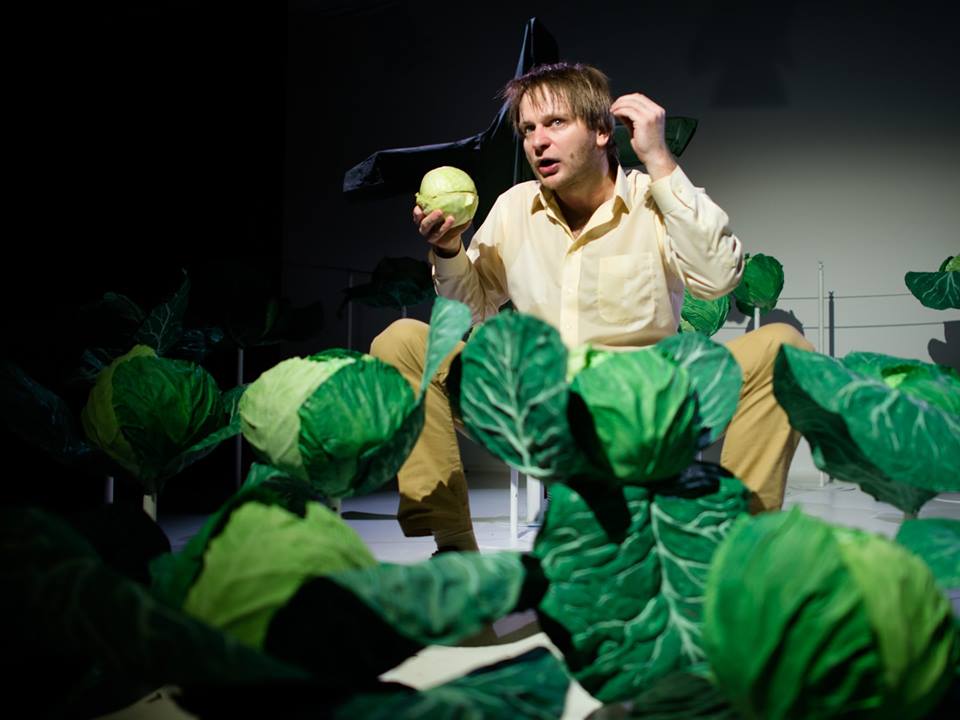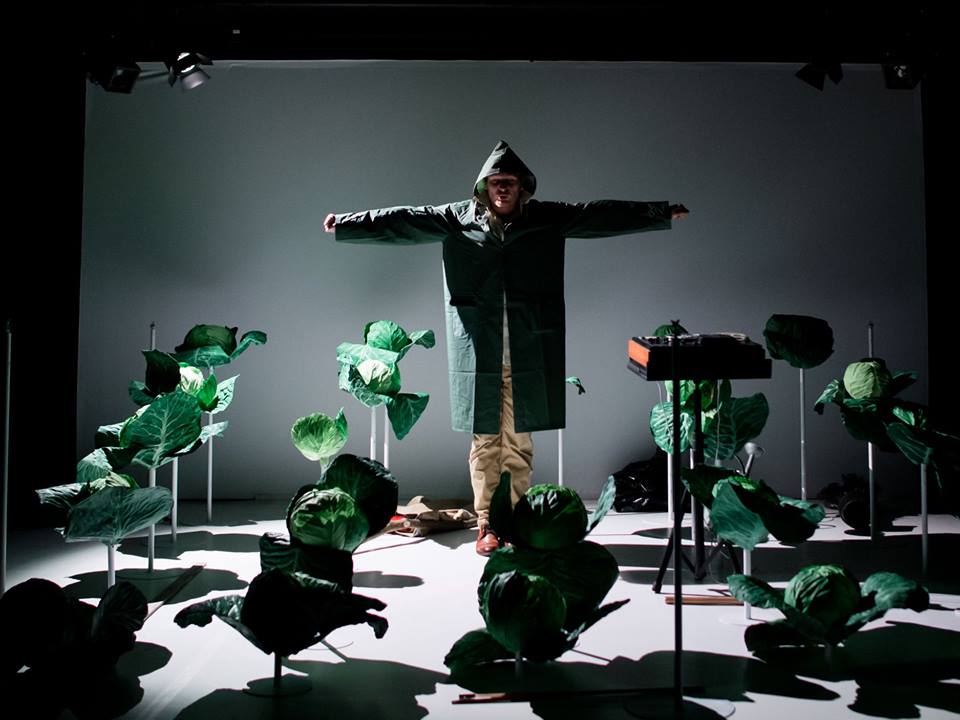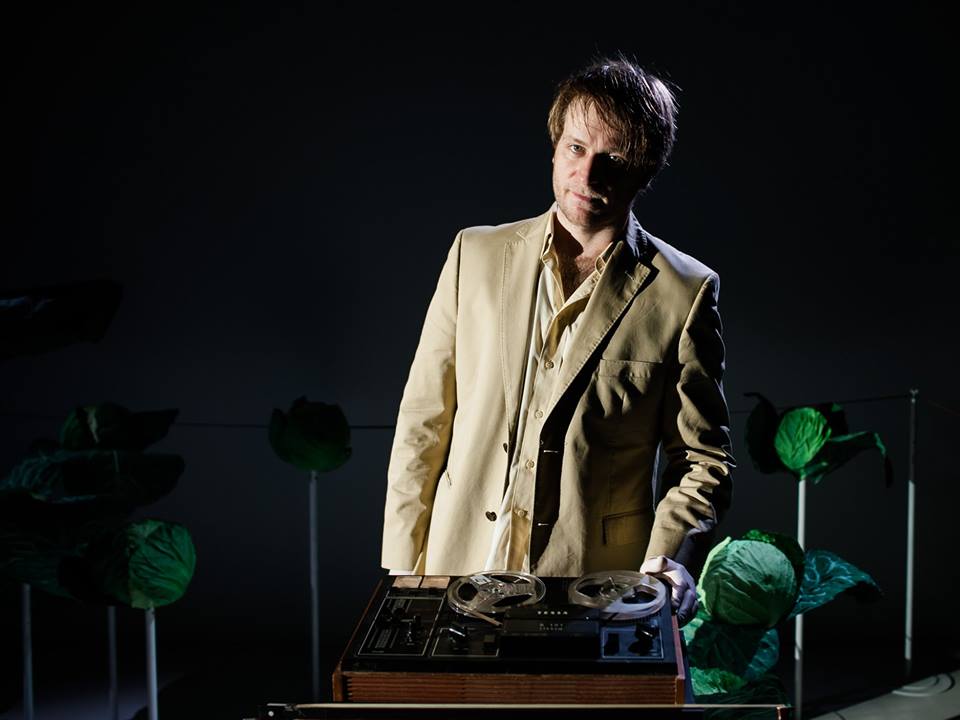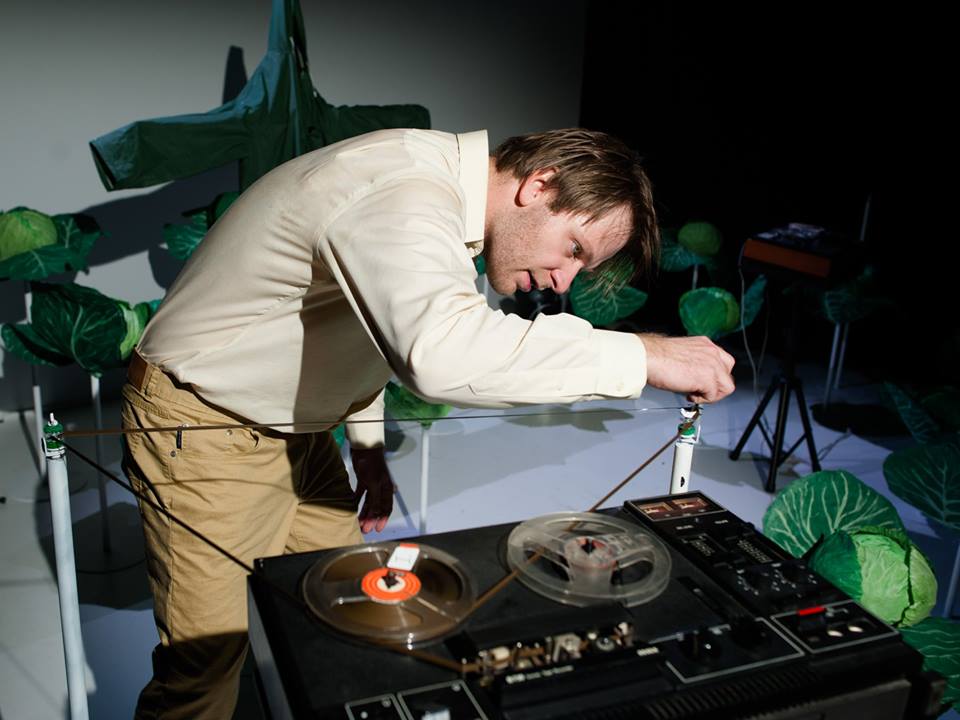No pardon
It really seems that theatre starts to rediscover its social role that is so often overlooked. Or, at least, it seems that reality indeed has an effect on the cultural sphere in those areas of Central Eastern Europe where denial and ignorance is no longer in fashion. Thus, after last year’s Divadelná Nitra, the fifteenth New Drama Festival in Bratislava also opted for a theatre that generates discussion.
This trend was not only present in the subject matter of the competition programme, and it might surprise the occasional theatre-goer that while at many prestigious festivals, the accompanying performances are often enticing commercial plays, here each and every production was highly professional. For example, the controversial conference on the artistic representation of climate change and catastrophes was revolutionary, just like the workshops of the honorary guest, Gianina Cărbunariu where important issues – like to what extent the domain of theatre can be extended – were discussed.
As a matter of fact, the plays submitted to the competition also investigated this question, and it is a welcoming change that a festival on contemporary Slovak theatre avoided the pitfall of pretended provocation by diving into the senseless dissection of the actual political situation – on the contrary, it aimed for interrupting this discourse with its radical openness. To further promote this idea, the productions in competition opted for casting new light on our common cultural heritage to make the less majestic chapters of our lives more accessible. This need for deconstruction added an international relevance to the competition, that, despite its uneven quality, provided an eye-opening snapshot of the least celebrated events of the 20th and 21st century.
It is particularly true for the winner production of the festival, Moral Insanity by Prešov National Theatre, based on Umberto Eco’s The Prague Cemetery. A whole study could be written on how contemporary theatre reacts to the increasingly in-your-face hate propaganda. Júlia Rázusová’s direction does not follow the framework of a classic narration, it uses the source text as a baseline for the anti-Semitic ideology. Eco’s tactics are similar, but it is even more dominant in the play’s unassumingly provocative and politically incorrect atmosphere: the dissection of the human race is a routine exercise, which has transcended the “us vs. them” dichotomy, and the solitary “I” demands despotic superiority.
This train of thought is reflected in Diana Strauszová’s set design as well. Peter Brajerčik takes up the pose of the crucified Christ, in a field of heads of lettuce stuck on plastic rods and waits until the audience settles, and he can start his atrocious litany. As it can be suspected, it is far from godly: this figure inundates us with his half-baked mental farrago, but we somehow cannot play down his playful absurdity as it hits too close to home. The measured irony of the space and accessories further disorients the common knowledge as it recalls at the same time a grotesque Paradise and a distorted, Panglossian world where the individual is about to exit society and, thus, the ever-forming history. Whichever interpretation we may choose, the garden definitely seems to be a safe place, even though it is not idyllic as it is apparently the common sense we are safeguarded from.
It is obvious that this figure was damned for blissful ignorance by his moral insanity. This way, the play does not document how society has broken up – it is considered to be sheer phantasmagoria –, but the situation after society and the State. It is not accidental therefore that the voice of the solitary human is mixed with a more and more repetitive loop of political demagogy until he literally covers himself with these shapes, while he presents himself either a scum or a Fascist (anti)hero: he must exclude everything that might disagree with his ideas as he cannot allow that reality should hinder the human hubris. Of course, he also tries to fight against this blindness, at the beginning of the play, he moves with compulsive gestures, something that is not his own decision but the legacy of his ancestors.
The audience responds to the torrent of hatred enthusiastically, but there is no unanimous laughter: everybody is targeted, everyone is in his crosshairs, therefore each and every attack is successful. Naturally, foreign countries are singled out at the beginning of the play, and the world seems to be divided based on the ideas of nationalism, but these communities are basically only used to describe others maliciously: “… Jews are not only vain like the Spanish, stupid like Croats, greedy like the Levants, ungrateful like the Maltese, shameless like the Gypsies, dirty like the English, smooth-tongued like the Kalmucks, haughty like the Prussians and spiteful like the Astians, but they are infinitely lecherous…”
This moral intriguer is not bothered by the evidence that he attacks his own people, dissecting them based on categories that are disturbing only to himself: homosexuals, men, women, the working class, the intellectuals, the youth, the old – everyone, with the slightest hint of personality is told off, there is no pardon. We might say that he is the only one who might be able to escape, but he needs to get away from himself as well, and it is quite a hopeless situation. Of course, the play can be read as commentary on contemporary politics, but these make-believe wisdoms of political ideologies transcend the present, showing a universal corruption we have not been able to get rid of for decades.
Peter Brajerčik’s presentation of a modern misanthrope is refined and never exaggerated. His neurotic behaviour is obvious from the get-go, and he can shake off his unnatural gestures only very gradually, he is a foreigner in his own body. As he starts throwing one punches after the other in every direction, he finds his own ground and he moves more confidently in his well-defined space. His poker face and his knowledgeable half-smile can be just as much shocking, while his gestures slowly disappear, the audience can only focus on his hateful tirade. The dramaturgical reconstruction of Eco’s text, however, does not facilitate the effect of his acting: the text is full of anecdotes and repetitions which could help the audience focus but because of its odd proportions, the text sags and loses its rhythm.
Despite its flaws in scenery and concept, Moral Insanity’s victory is uncontested as its stream-of-consciousness challenges itself while it also explores several political ideologies without sugarcoating them – a production that perfectly resonates with our contemporary issues. It is also worth noting the messages behind the other awarded productions. In addition to Júlia Rázusová’s Grand Prix, Katarina Cakova was given an award for the set design of The Emperor of Love, while the student jury chose The Reunification of the Two Koreas, another production by Júlia Rázusová, as the best play; finally, the play Love You and Take Care, directed by Veronika Malgot and Lýdia Ondrušová, was awarded with the Bratislava Audience Prize. It seems that women have gained ground in the Slovak theatre, and they are ready to take the (social) responsibility that goes with that.
Translated by Zsolt Beke Cz.
Photos by Robert Tappert
Ha tetszik, amit csinálunk, kérünk, szállj be a finanszírozásunkba, akár csak havi pár euróval!

